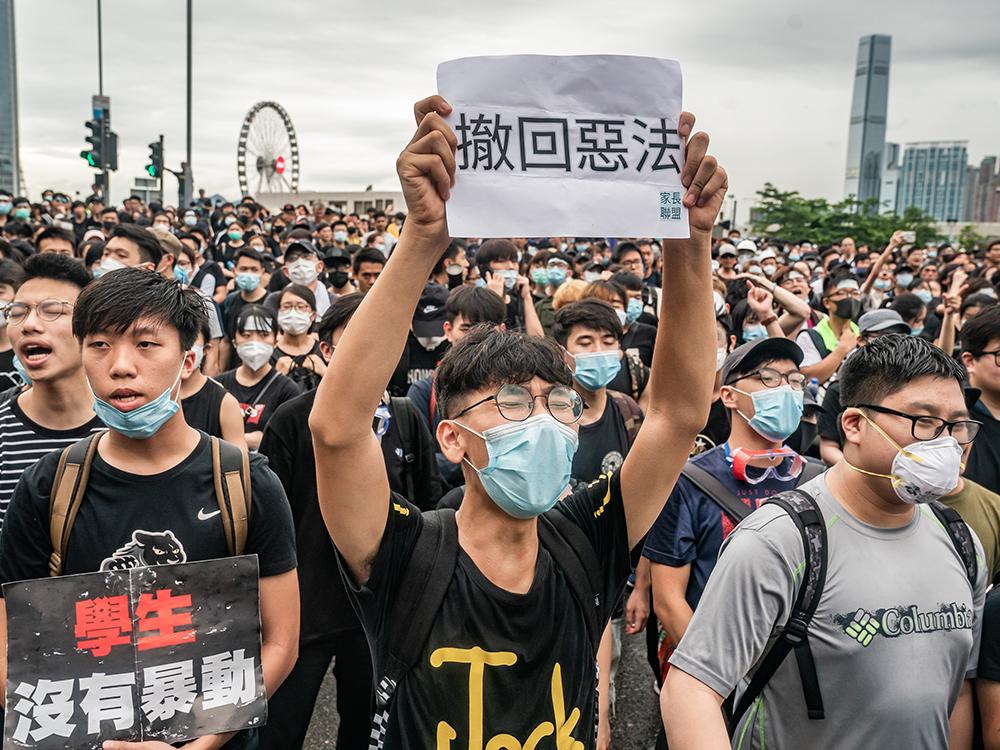In recent weeks, several cargo ships have mysteriously “gone missing” as they reached Chinese waters. It seems tracking devices fail to detect their whereabouts once they are in the Chinese territory.
According to Laura He, a Hong Kong-based CNN reporter, there has been a sudden dip in the shipping volume towards the end of October. The trend raises concern as China implemented new rules governing data privacy from November 1.
Ships are typically tracked across the world with the help of an Automatic Identification System (AIS) that transmits their position, speed, course, and name by radio or satellite.
Nonetheless, according to shipping data platform Vessels Value, the overall number of signals broadcast from Chinese waters has dropped by nearly 90% since the beginning of the month.

Charlotte Cook, Vessels Value’s head trade analyst, was quoted by CNN as saying, “We’re witnessing an industry-wide decline in terrestrial AIS signals in China right now.” China’s increasing isolation from the rest of the world, as well as a growing distrust of foreign influence, could be a reason for this unusual trend.
China’s New Data Law
The new Personal Information Protection Law (PIPL), a comprehensive set of data governance regulations in China, went into effect from November 1, 2021. Before transmitting personal data outside of China, companies must obtain permission from Chinese authorities under PIPL.
China officially passes a law designed to protect online user data privacy, completing another pillar in the country's efforts to regulate cyberspace, and is expected to add more compliance requirements for companies in the country https://t.co/hCBg9DjLAU pic.twitter.com/BSZFelDZwz
— Reuters (@Reuters) August 20, 2021
The new law is directly tied to the government’s national security concerns and builds on recent cybersecurity and data security laws. Overseas corporations that violate the PIPL or endanger China’s national security may be blacklisted, thereby barring them from handling Chinese personal data and potentially leaving the door open to regional and global tit-for-tat retaliation.
Analysts believe the timing of the signal drop-off indicates that firms have yet to find out new ways to transmit signals while staying inside the new law’s parameters. Other industry experts claim that around the time the rule went into force, sources in China informed them that some AIS transponders were removed from places along the Chinese coast.
China’s Ministry of Foreign Affairs, however, has denied this, telling CNN that AIS stations “have not been taken down and are operating normally”. Interestingly, the law makes no mention of shipping information. It’s possible that Chinese data providers are concealing information as a precaution.
The global shipping industry relies largely on AIS data to predict vessels’ movement, track seasonal trends, and improve port efficiency for operations in and out of China, which is home to more than half of the world’s top ten busiest container ports.
As the festive season approaches, the shipping sector and the global supply chain will be severely impacted by the loss of critical information on ship docking, unloading, and departure times.
China Wants To Control Information Flow?
The Chinese government’s desire to maintain complete control over all information and data within its borders is unsurprising, given President Xi Jinping’s efforts to restore the Communist Party’s influence over all aspects of the financial system and society.
As a reaction to external challenges such as US restrictions on critical technologies, the government has been pressing for economic self-sufficiency.
In the years leading up to and throughout a severe trade and technology spat with former US President Donald Trump, Xi underlined his self-reliance aspirations. For example, “Made in China 2025,” an ambitious goal to drive China’s manufacturing industry into more advanced technology domains.
However, Xi’s trusted supporter, Vice President Wang Qishan, said at the Bloomberg New Economy Forum that China would not become isolated from the rest of the world and also urged countries to make supply chains “stable and smooth”.

These claims appear to be contradictory, as Xi has stepped up his campaign for self-reliance throughout the pandemic, emphasizing the importance of creating independent and regulated supply chains to ensure national security.
In addition, the country’s broad anti-tech crackdown was stretched to foreign IPOs this summer, when the Cyberspace Administration of China urged that prominent enterprises with more than a million consumers seek approval before offering shares outside of China. The isolation is further stretched to the shipping industry, which is also facing major challenges owing to the Chinese restrictions.
China’s more harsh Covid Zero rules are impeding the shipping industry’s full recovery and prolonging a crisis that has clogged ports around the world. China has begun to bar foreign crew changes in an effort to keep the virus out and has lately implemented a seven-week mandatory isolation protocol for returning Chinese mariners.
Even vessels that have refreshed their crews elsewhere must wait two weeks before being permitted to dock in China.
Ship managers and operators are urging China to ease its regulations and governments to prioritize seafarers and shipping or face further disruptions that would disproportionately impact mariners.
Some of these changes may be welcomed by China’s leadership. According to Yu Jie, a fellow at Chatham House in London, the pandemic has prompted Xi to hasten down a path that he was already on: national self-reliance.
For nearly two years, President Xi himself has not left China. He last encountered a foreign leader in person in March 2020, when he met with Pakistan’s president in Beijing. The implications for international trade are clearly visible.
While China continues to do business and invest in other countries, the business environment within China or in China-controlled regions is slowly changing. Global CEOs are leaving China without being replaced, according to foreign chambers of commerce in the country.
Even Hong Kong’s reputation as a global financial hub has suffered a setback in the wake of Beijing’s clampdown on pro-democracy protestors and the implementation of stringent national security law in the special administrative region.
- Contact the author at ashishmichel@gmail.com
- Follow EurAsian Times on Google News




